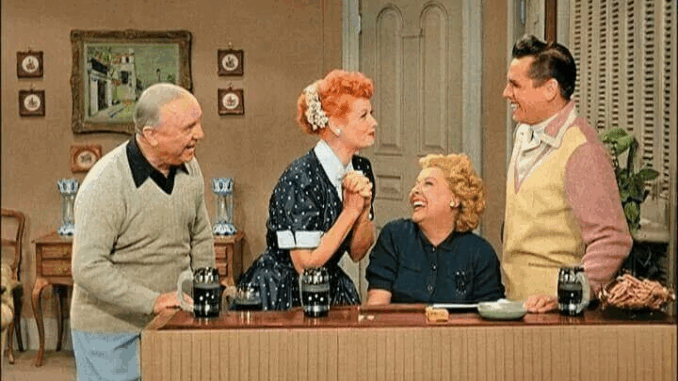
I Love Lucy is widely celebrated as one of the most beloved and influential sitcoms in television history. But behind its iconic laughter and timeless charm lies a fascinating story filled with backstage drama, personal struggles, and groundbreaking achievements that few fans truly know.
The Intense Rivalry Between Two Leading Ladies
Lucille Ball’s portrayal of the hilarious and endearing Lucy Ricardo captivated millions, yet her journey to the top was far from easy. What many viewers don’t realize is that the chemistry seen on screen between Lucille Ball and Vivian Vance — who played Lucy’s best friend Ethel Mertz — belied a complex and often tense relationship off-screen.
Reports and memoirs reveal that the two actresses frequently clashed over creative decisions, screen time, and even personal differences. At times, their disagreements threatened to derail the show, with rumors swirling that Vivian considered leaving the series altogether. Overcoming these interpersonal conflicts required tremendous professionalism and a shared commitment to the show’s success — a testament to the dedication behind the laughter.
Balancing Stardom and Personal Turmoil
Lucille Ball was not only the star of I Love Lucy but also its executive producer, a rare feat for a woman in the male-dominated television industry of the 1950s. This dual role brought intense pressure to maintain both the creative vision and the demanding production schedule.
Behind the scenes, Ball grappled with personal challenges, including health issues she kept hidden from the public and the complexities of her marriage to co-star Desi Arnaz. Their on-screen chemistry as Lucy and Ricky was undeniable, yet their real-life relationship was marked by ups and downs, adding layers of emotional complexity to the production.
Breaking New Ground: Innovation in Television
I Love Lucy revolutionized television in many ways — from pioneering the multi-camera setup filmed in front of a live audience to exploring taboo subjects with humor and heart. The show broke the mold by blending slapstick comedy with genuine emotional depth, tackling everyday domestic life with wit and empathy.
Its groundbreaking production techniques not only improved the quality of sitcoms but also laid the foundation for countless shows to follow. The success of I Love Lucy proved that television could be both a commercial and artistic triumph.
Enduring Legacy and Cultural Impact
More than seven decades later, I Love Lucy continues to resonate with audiences worldwide. Its episodes remain widely syndicated, appealing to both nostalgic older viewers and new generations discovering its timeless humor.
The show’s influence extends beyond entertainment; it challenged social norms and opened doors for women in television, setting a precedent for female comedians and producers. Lucille Ball’s fearless creativity and resilience remain a source of inspiration for artists and fans alike.
In conclusion, I Love Lucy is much more than a classic sitcom — it’s a story of perseverance, innovation, and the complex human experiences behind the laughter. The tensions and triumphs of its creators helped craft a show that truly changed the television landscape forever.
